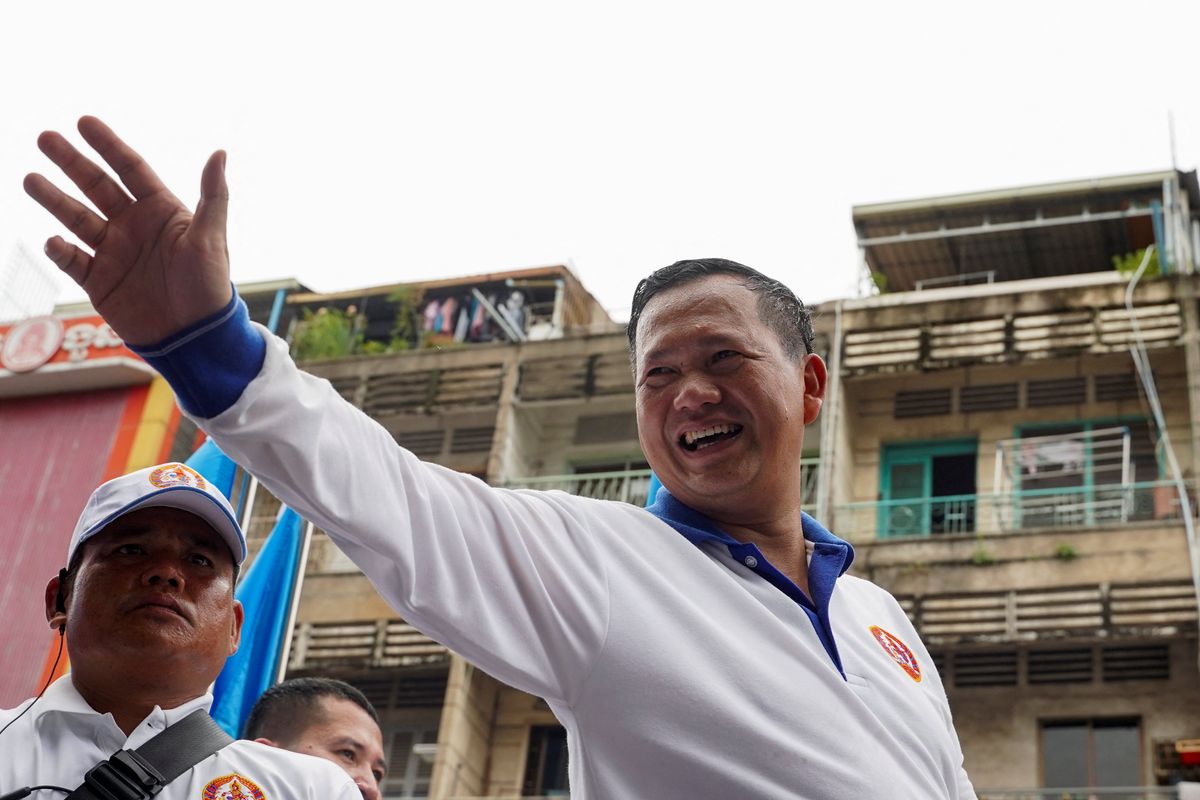Following last month’s “nepo-baby succession” election, Cambodia’s parliament on Tuesday elected Hun Manet to take over as prime minister from his father Hun Sen, who ruled for almost 40 years.
Manet, who has served as Cambodia’s army chief, gained notoriety for negotiating a peace settlement with Thailand in 2011, narrowly averting a senseless war.
But his rise to the top job had little to do with merit and everything to do with the ruling party controlling all 125 parliamentary seats in a country where opposition parties are banned and political dissidents are squashed. His father won the parliamentary election for his party in July before announcing that he would be stepping down, paving the way for his son’s succession.
But just because he won the premiership without lifting a finger doesn’t mean governing will be easy. He is inheriting an institutionalized patronage system in which the ruling party’s rich elites often have competing interests. The country’s economy is also in trouble, suffering from its over-reliance on tourism, which was decimated during COVID-19, and a low-cost labor force.
World powers will be watching to see if the transfer of power signals a shift in Cambodia’s pro-China foreign policy. Cambodia is China’s closest friend in the region and has made a habit of siding with Beijing when there are squabbles within the Association of Southeast Asian Nations.


















